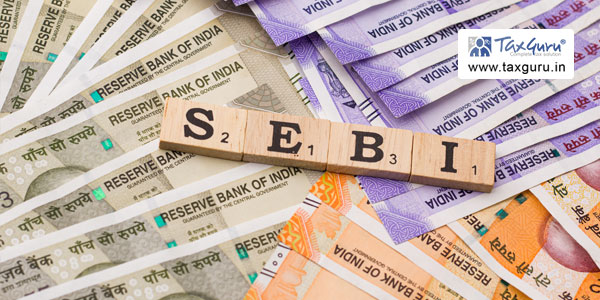This article is penned down to analyse the legal issue that arises in respect of Refund of unutilised Input Tax Credit (ITC) on account of Inverted Duty Structure under GST regime after an amendment in clause pertaining to time period prescribed for filling refund application w.e.f. 01-02-2019.
Before going further, let us understand all the relevant legal provisions pertaining to Refund of accumulated ITC due to Inverted Duty Structure under GST law.
Section 54(3) of CGST Act 2017 provides refund of unutilised input tax credit. As per section 54(3) (ii), refund of unutilised input tax credit shall be where the credit has accumulated on account of rate of tax on inputs being higher than the rate of tax on output supplies (other than nil rated or fully exempt supplies), except supplies of goods or services or both as may be notified by the Government on the recommendations of the Council.
Section 54(1) of CGST Act 2017 provides the time limit of two years from the relevant date within which refund can be filed by registered taxable person. The relevant statutory text of section 54(1) is reproduced as follows: –
Any person claiming refund of any tax and interest, if any, paid on such tax or any other amount paid by him, may make an application before the expiry of two years from the relevant date in such form and manner as may be prescribed:
In order to have a clear understanding, Clause (e) to explanation (2) to section 54(14) which defines the ‘relevant date’ is reproduced below:
“Explanation – For the purpose of this section, —
(1) …………………………….
(2) “relevant date” means –
(a) ……………………… ..
(b) ……………………… ..
(c) …………………….. …
(d) ………………………….
(e) in the case of refund of unutilised input tax credit under sub-section (3), the end of the financial year in which such claim for refund arises.
In light of the above provisions, refund of unutilised input tax credit due to inverted duty structure can be filed within two years from the end of Financial year in which such claim for refund arises. Hence, refund of accumulated Input Tax Credit for Financial year 2017-18 can be filed up to 31 March 2020.
Further, Clause (e) to explanation (2) to section 54(14) of CGST Act 2017 has been amended by section 23 of CGST (Amendment) Act 2018 in the following manner with effect from 1st Feb, 2019: –
(e) in the case of refund of unutilised input tax credit under clause (ii) of the first proviso to sub-section (3), the due date for furnishing of return under section 39 for the period in which such claim for refund arises;
Now, let us understand the impact of both the said provisions with the help of a following chart for better analysis in which we will see the different due dates to file refund for the m/o July, 2017 as per the said section Before amendment vs After amendment w.e.f. 01-02-2019.
| Particulars | Time Limit for Refund due to Inverted Duty Structure before Amendment
|
Time Limit for Refund due to Inverted Duty Structure after Amendment w.e.f. 01st Feb,2019
|
| Refund Period | July, 2017 | July, 2017 |
| Explanation 2 Clause (e) to Sec 54 (14) of CGST Act, 2017 | Two years from the end of Financial Year in which claim for such accumulated credit arises. | Two years from the due date for furnishing of return under section 39 for the period in which such claim for refund arises. |
| Trigger Date for calculating 2 years | Two years from the end of F.Y. 2017-18 i.e., 31st Mar, 2018. | Two years from the due date for furnishing GSTR-3B for the m/o July, 2017 i.e., 25th August, 2017. |
| Due date to file refund | 31st Mar, 2020 | 25th Aug, 2019 |
It is worthwhile to mention that the time limit for any compliance which falls during the period from 20th day of March, 2020 to the 30th day of Aug, 2020 is extended till 31st August, 2020 vide Notification No. 35/2020 – Central Tax dated 03-04-2020 with amendment vide Notification No. 55/2020- Central Tax dated 27-06-2020.
On the plain reading of the above amended provisions, it seems that refund on account of inverted duty structure can now be filed within “two years from the due date of furnishing of return under section 39 for the period in which such claim for refund arises”. However, as we delve deeper into the issue, the question arises whether the change in time limit for filing refund claim would apply only for the tax period reckoning from the February, 2019 onwards or will also hit the refund application filed after 01.02.2019 but pertaining to the tax period(s) prior to February, 2019.
In other words, whether this amendment in said section would apply prospectively or retrospectively.
Despite the fact that various benches and judges of the SC have ruled on the validity of retrospective amendments, the discussion on the said subject has always been thought-provoking.
In view of the author, reliance is placed upon the judgment in the case of Mcdonalds India Pvt Ltd vs Delhi 2019 wherein the double bench of CESTAT, Delhi held the following: –
“the basic principle for ascertaining the retrospectivity of legislation is a principle of ‘fairness’. Thus, legislations which modified accrued rights or which imposes obligations or imposes new duties or attach a new disability have to be treated as prospective unless the legislative intent is clear to give the enactment a retrospective effect.”
In view of author, the change in time limit for filing refund claim can’t be said to be retrospective merely because it relates to past action. The change in said section only shortens the time limit for filing refund claim which is not beneficial to the taxpayer and is onerous thereby the change in time limit for filing refund claim can’t have retrospective effect.
Further, reliance is also placed upon judgment of Hon’ble Tribunal’s Larger bench order in the case of CELLULOSE PRODUCTS OF INDIA LTD. 1993 (64) E.L.T. 65 (Tribunal) wherein Hon’ble Tribunal held that time limit for giving direction in the instant case would be governed by amended section.
In the light of above landmark judgements, the following two inferences can be drawn: –
(1.) The amended section 54 of CGST Act, 2017 can’t take away or impair vested rights of a taxpayer under existing laws. An amended section can’t be enforced retrospectively thereby a registered taxpayer still has time in respect of refund claim pertaining to period July,17. or
(2.) Every refund claim filed on or after 01st Feb 2019 will be governed by amended section 54 of CGST Act 2017 even if the refund claim pertains to period prior to 1st Feb, 2019.
“However, a clarification from the Government for time limit in this regard would be a magical bullet for both the taxpayers as well as the Department in order to avoid numerous litigations and proceedings in future.”
Practically, in current scenario, some Refund Processing Officers under GST are not granting refund for the period July, 2017 to Jan, 2018 by issuing Show Cause Notice in Form GST RFD-08 on the ground that it is time barred on account of lapse of prescribed two years from the relevant due date of furnishing return under section 39 of CGST Act, 2017 i.e., 25-08-2019 for July, 2017 and 20-02-2020 for Jan, 2018.
But a registered taxpayer may convince the concerned RPO, by drafting a proper reply along with required documents and the strong grounds in Form GST RFD-09 online on the portal within 15 days of issuance of notice, for granting refund arises due to inverted duty structure for the period July, 2017 to Jan, 2018.
“Moreover, it is advisable that the registered taxpayers should file a refund claim on account of inverted duty structure for the period Feb,18 to July,18 on or before 31st Aug, 20 which is within the amended time limit as provided under section 54 of CGST Act 2017 and the benefit given vide Notification No. 55/2020- Central Tax in order to avoid any legal dispute with the department in future.”
*****
Disclaimer: The views presented are in personal and generic form and not as a legal advice. Users of this information are expected to refer to the relevant existing provisions of the applicable laws.
The author may be reached at tax.bkansalco@gmail.com.



























very good article